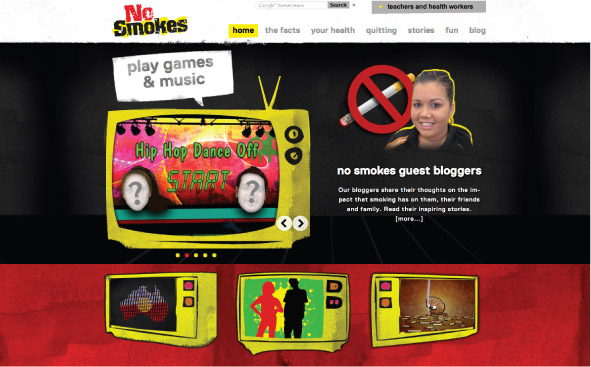Civics and citizenship
Citizenship, diversity and identity
Identity and the media
National identities are made up of lots of different factors. Cultural practices, morals, laws, attitude towards religion and social values all help form an identity that represents an entire country. The media representation of a country’s identity has a considerable impact on how we view ourselves and the national identities of our countries. The reporting of global events hosted by Australia, such as the 2000 Olympic Games in Sydney, provide other countries with an insight into the cultural and social identity of Australia.

Similarly, global reporting of incidents in Australia can lead to a very different type of national identity. For example, after several attacks on Indian international students in Melbourne in 2009, many Indian newspapers reported potential racism as a part of the Australian identity.
Neither the media coverage of the Sydney Olympics nor the attacks on international students is an accurate representation of an Australian identity, but the way in which the media reports on events and represents Australia will have an impact on other countries’ perceptions of Australians.
Aboriginal and Torres Strait Islander people and the media
The media can be a very powerful tool for spreading a particular message. Within Australia, the media has been used to address the disparity between the health and life expectation between Indigenous Australians and non-Indigenous Australians. A non- Indigenous Australian has a life expectancy of 79, while Aboriginal and Torres Strait Islander people have a life expectancy of 59. The difference in life expectancy and well being has led to an initiative called ‘Closing the gap’. Researchers found that an Indigenous Australian is twice as likely to die from a disease or serious illness as a non-Indigenous Australian.
One area of health risks that is particular high in Aboriginal and Torres strait Islander communities are diseases caused by smoking. Over 50% of Aboriginal and Torres Strait Islander people smoke, a statistic far higher than in any other group in Australia. In reaction to this, the ‘No Smokes’ campaign was launch which used the media to spread the message about the dangers of smoking. The campaign targeted teenagers and young adults through utilising social media (particularly YouTube). In this case, the media has been used to address a major health concern within Australia.

Australia and global connectedness
Over the past few decades it has become increasingly easy for people to live and work overseas. Generations ago an overseas trip would have been a luxury that few families could have afforded; now overseas holidays are fairly commonplace. Over 800 000 Australians choose to work overseas, primarily in the United Kingdom and the United States. While this would be an exciting adventure for the people involved, there is a concern that Australia’s most highly skilled workers are leaving the country (over 44% of Australian working overseas have a university qualification). This concern is known as ‘brain-drain’ in the popular media and there is some debate surrounding whether or not it is a significant issue.
The Australian values of respect, acceptance and ‘fair play’ extend beyond our own borders. Australia is part of a bigger global community and is known for representing good global citizenship. The government organisation Australian Aid delivers aid from Australia to underdeveloped countries, particularly in the Asian region. Many Australians work for Australian Aid providing desperately needed support to countries that require assistance in health care, education and emergency relief. For example, Australia provides $500 million dollars to Papua New Guinea, primarily to help build schools and develop the education system.
PNG is Australia’s closest neighbour. Despite positive economic growth rates in recent years, PNG’s social indicators are among the worst in the Asia Pacific. Approximately 85% of PNG’s mainly rural population is poor and an estimated 18% of people are extremely poor. Many lack access to basic services or transport. Poverty, unemployment and poor governance contribute to serious law and order problems. Improving the lives of poor people and promoting stability are central to Australia’s interests.
Source 21.1.3 Australian aid in Papua New Guinea
Australians working for NGOs
A non-governmental organisation (NGO) is a group or organisation which works on important human rights issues without influence or orders from a government. NGOs play an important part in improving the living conditions and civil rights of many improverished people around the world. Many Australians choose to work for NGOs in order to make a difference to the local and global community.
World Vision Australia is an important global NGO that seeks to deliver children out of poverty around the world. The organisation was formed in 1966 and is based in Melbourne. The group has strong links to Christian churches and receives funding from donations from the public as well as the Christian church. This NGO employs over 600 people (many of whom are Australian) and provides emergency relief and aid in 94 of the world’s poorest countries.
Australian Tim Costello is the CEO of World Vision Australia and was given the Order of Australia in 2006 for his good works with the NGO and his many contributions to the Australian community.
DEVELOPING YOUR UNDERSTANDING 21.1.1
- List three reasons why you think overseas university students might want to study in Australia.
- Define the term ‘global citizenship’ and outline how Australia reflects the term through Australia’s aid program in Papua New Guinea.
- Outline what the term ‘brain-drain’ might mean and how the term relates to Australians working overseas.
- Visit the ‘No Smokes’ website (via www.cambridge.edu.au/hass9weblinks) and identify three different ways the campaign uses the power of the media to spread the message of the dangers of smoking.
- Analyse the ways in which World Vision Australia and Tim Costello demonstrate good global citizenship.